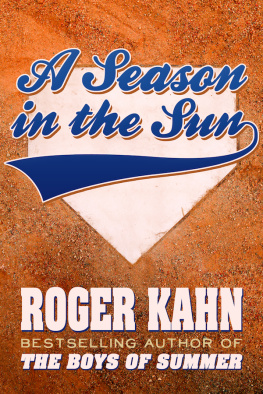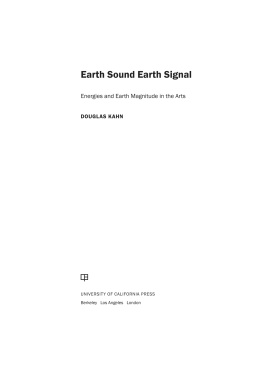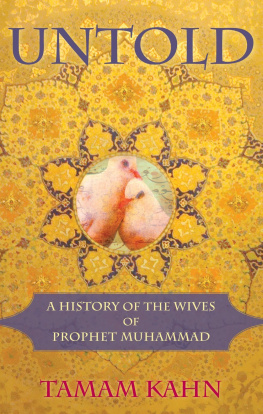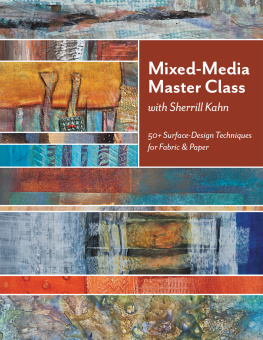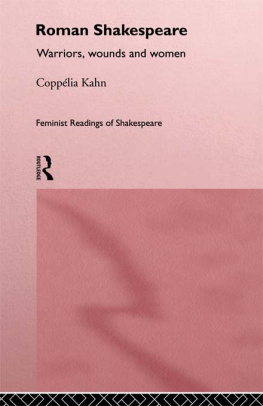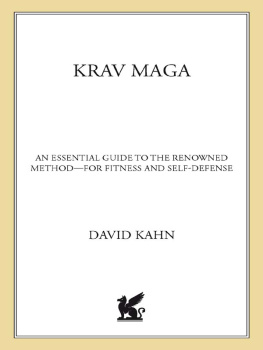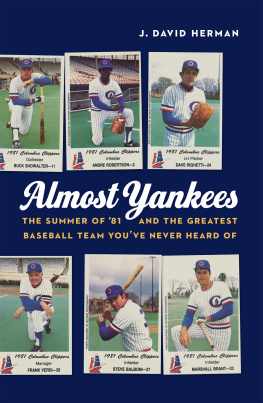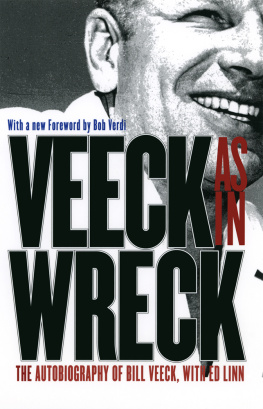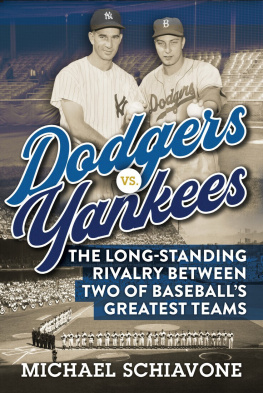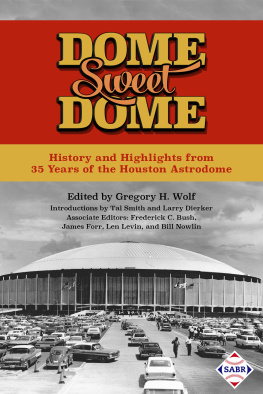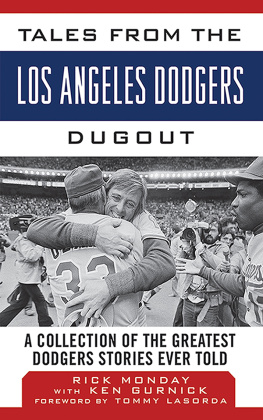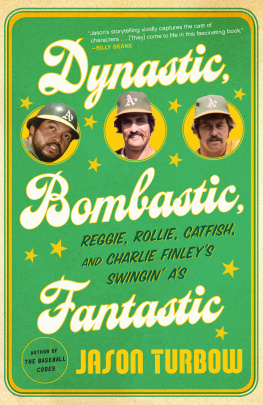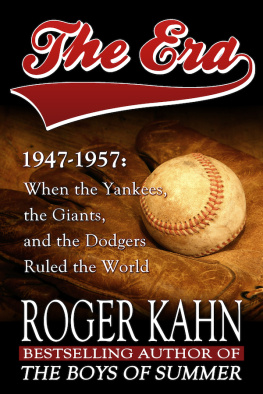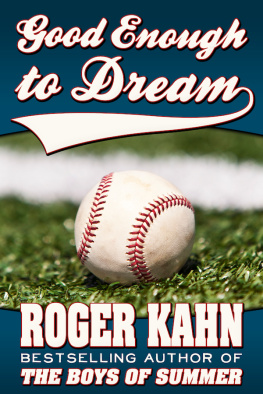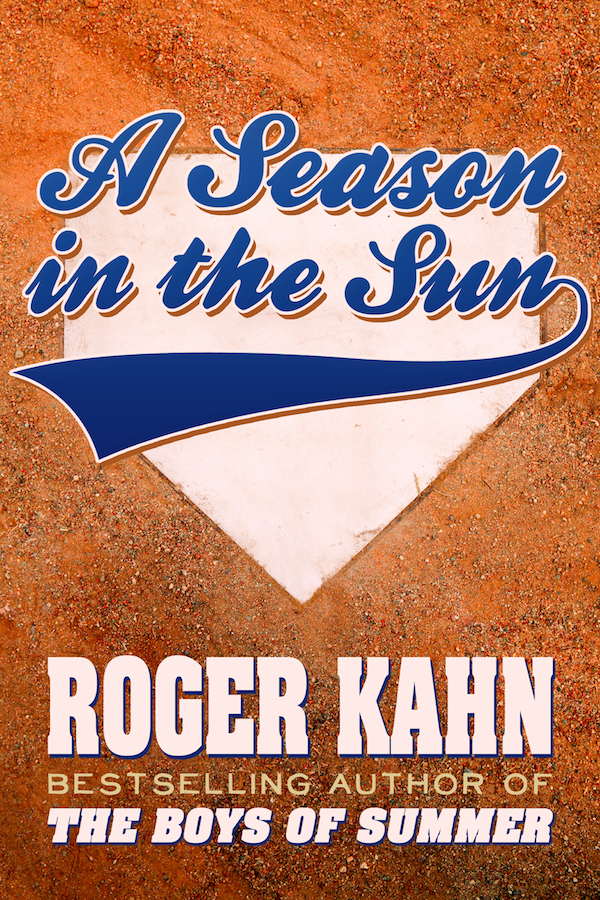Prologue in Early Spring
... besides, when the sky is so blue things sing themselves.
E. E. CUMMINGS
Vandals had set fire to the grass. No one knew how they had gotten wet spring grass to burn, nor why anyone wanted to fire a soft suburban meadow, but there the ball field lay, grimy with ash on the sixteenth day of spring.
Its all right, the boy said. We can play anyway.
I was wearing red sneakers, a gift Lou Brock had offered, along with a lecture on quickness and traction and stealing bases. Brocks autograph is stitched near the instep and someone noticing his name as I loped through a softball game once said, Them sneakers have never moved so slow. Still, they are my present from a superb major leaguer, and so a kind of totem. I didnt want them dirtied with black ash.
Well get messed up, I said. We can try again next weekend.
We dont have visitation next weekend. Come on. Just pitch a few.
Clumps of forsythia bloomed yellow on a knoll and arching willows showed a promise of green. But the April wind cut sharply through our jackets. This spring day was better admired from indoors.
The boys large eyes fixed me with a demanding look. Just pitch a few, he said. Then, seductively, After that, Ill pitch and you can hit.
His name is Roger and he has a sturdy twelve-year-old body and a passionate excitement at being alive. Im studying The Renaissance, he announced recently, as I was preparing papers for a tax audit.
Good, I said. The Renaissance, I said. Who the hell was Michelangelo?
Wait, Roger cried. Dont give me the answer. I know. Michelangelo put statues in the gardens of the Medici.
He is constantly delighting me in unexpected ways, but ours is a spiky relationship. His mother and I had good times, very good times, and when the bad times came they were as bad as any I have known. Then Roger found himself between two parents whom he loved and five lawyers whom he did not know, all clawing toward a divorce settlement he would not understand. Roger has not pieced things together yet. Sometimes he rages. Sometimes he grows morose. But we can talk about The Renaissance. And we play ball.
He carried a new aluminum bat as he ran toward a sooty home plate. Like major leaguers, children run to the plate for batting practice.
He hits lefthanded. We started working toward that nine years ago when we all lived together, and now as he took an open stance, he chattered directions. Dont throw too hard. I havent started working out yet. Dont throw me curves. Let me get my swing grooved. Okay. Come on.
I began to throw high pitches at medium speed. My older son stationed himself in right center, generous enough to shag for his brother, unhappy as I with the April wind.
Roger lunged. Four years with the Little League in Ridgefield, Connecticut. Four seasons under coaches who work for IBM, or sell insurance or pilot 727s, and nobody has taught him, or been able to teach him, that a good hitter does not lunge.
Keep your head still, I said.
The boys mouth tightened. He had not come to learn. He wanted to show me how far he could hit my pitching, swinging his own metal bat in his own way.
Very well, young man, I thought. Today in the April cold, youll get a playing lesson. Subject: He who lunges never hits .300.
I threw hard with an easy motion. Roger swung late. I threw easily with a big motion. He swung early. I tried to jam him, but the ball drifted inside toward his knees. Roger made a graceful arcing leap. The ball skidded into the backstop. He lay face down, shaking on the earth.
I hurried to him. Sorry. Sorry. You all right?
He rolled over, blackening his jacket. He was shaking with defiant young laughter. You couldnt hurt me, he said.
We grinned and at once the playing lesson was done. He had earned the right to pitches he could hit. Roger began scattering line drives. His brother, the outfielder, retired. Roger looped a fly to center. There was no one to retrieve the ball but me. He bounced sharply through the middle. Another job for an aging chilly righthander. He lashed a high inside pitch clear to a ditch at the border of right field.
Now well just play pepper, I said, when I returned with the ball.
He insisted on borrowing my bat. Thirty-two ounces. A fat-barreled Ron Santo model. Either Roger did not know the rules of pepper or he didnt know how suddenly strong he had become. I made a pepper toss. Roger whipped the big bat. We stood thirty feet apart. The blackened baseball hurtled at my nose. I threw a glove up and deflected the ball and stumbled. Sitting on charred grass, I remembered a transcendent reality of baseball. The ball is hard. It is something to fear. Forty years ago I learned that from my father in Brooklyn fields that have vanished under high-rises. Seventy years ago, he learned that from his father on fields that have disappeared under slum. And now my son, in careless, innocent excitement, had reinforced a family lesson old as the century.
Roger came toward me slowly. The Ron Santo model seemed almost as big as he. His face was white. Dad, I didnt mean to hit a liner at your face.
Getting up, glad still to have a nose, I fell back on a Wayne-Bogart gambit. Gosh, kid, I didnt know you cared.
Sure I care, Roger said and he put an arm around my waist. We started hiking to a distant house where splits of maple crackled in a fireplace. There we could sit before the fire and talk baseball.
What would I tell him? Of Stan Musial, most gentle of athletes, whose swing was like a vipers lash? Or of the day when Early Wynn brushed Mickey Mantle, who bounced up and hit a single? Wynn was so furious that before he threw another pitch, he went into a careful pick-off move. Then he hit Mantle with his throw, knocking him to the ground beside first base. That son of a bitch is so mean, Mantle complained, hed fucking knock you down in the dugout. Or about Victor Pellot Power, of Arecibo, Puerto Rico, whom the Yankees traded in 1954 for announced reasons that are not worth remembering? The real reasons were that Power was black and Latin and reputedly liked the company of white women. Victor Pellot Power, a solid .290 hitter, seven times won the Gold Glove awarded to the best first baseman in the American League, but he won it for clubs without the moralistic, some would say prejudiced, front office of the old Yankees. (When I saw Power in the Puerto Rican hill town of Caguas years later, he demonstrated that the Yankees had been correct in at least one thought. Power liked white women well enough to have married a compact, smoldering blonde whose name is Ada.)
The game begins with sons and fathers, fathers and sons. The theme is older than the English novel, older than Hamlet, old at least as the Torah. You play baseball with love and you play baseball to win and you play baseball with terror, but always against that backdrop, fathers and sons. Stan Musial describes his father, Lukasc, as a wiry Polish immigrant, who spoke broken English and didnt understand a stolen base. His son wanted only to play ball.

